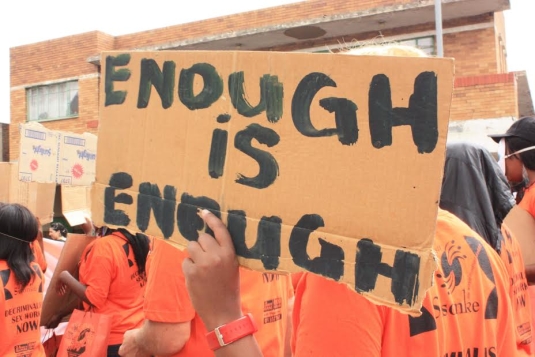09.04.16 – Round Table: sex-work or prostitution
09.04.2016 – 14:00
SEX-LABOUR or PROSTITUTION: INTIMATE LABOUR, PLEASURE, VIOLENCE, EXPLOITATION
Round table of the Centre for Gender Studies of EHU (together with together with international public association “Gender Perspectives”)
Participants:
Irina Alkhovka (Minsk), head of international public association “Gender Perspectives”, member of national council for gender politics by the Council of ministers of the Republic of Belarus.
Elena Minchenia (Vilnius, Lund), researcher at the Centre for Gender Studies of EHU, PhD student at Lund University.
Tatsiana Pratskevich (Minsk), specialist on monitoring and evaluation of the prevention programs of HIV-infection among women involved in sex-business, implemented by Republican Public Organisation “Belarussian Association of UNESCO Clubs”, under the auspices of the Global Fund to Fight AIDS,Tuberculosis and Malaria.
Natalia Hodyreva (St Petersburg), member of the Institute Of Non-Discriminant Gender Relations “Crisis Centre for Women”, docent at St Petersburg State University, author of “Contemporary debates about prostitution. Gender approach” (Aletejâ, 2006)
Moderator: Olga Sasunkevich (Vilnius), executive co-director of the Centre for Gender Studies, lector at EHU
From the point of relation to sex-labour/prostitution gender community is heterogeneous. A part is in favour of legalisation of sex-business/prostitution, which is seen as ordinary work and, consequently, should be organised according to the same labour rules, as any other labour connected to services. The opponents of legalisation of sex-labour/prostitution do not recognise prostitution as labour, based on the fact that this activity can be viewed as ordinary economic occupation, because it is linked to exploitation and sexual objectification of women. Many female feminists speak for the debates about sex-business/prostitution to include, apart from the very workers, their clients. As such, some Scandinavian countries (Norway, Sweden) do not legalise sex-labour/prostitution, but simultaneously do not criminalise the workers. They practice client criminalisation.
At this round table, together with invited experts, we want to discuss which discussions around sex-labour/prostitution do exist among activists and researchers in various countries, and to what extent the experience of Western Europe or Scandinavia is applicable to post-soviet area. Which connotations are put into the notions of “prostitutions” and “sex-labour”? Who are the beneficiaries of the policy of ignoring the systemic factors in relation to prostitution? We are going to speak about advantages and disadvantages of various approaches of conceptualisation and organisation of sex-labour/prostitution, and also we will try to clarify whether the relationships which are formed while giving sex-services/prostitution are ordinary work relations, and what is the distinction of sex-labour/prostitution from other forms of economic occupation; what is the difference between prostitution and rape; why are the most vulnerable social groups are involved in sex-labour/prostitution; and whether legalisation of sex-labour/prostitution helps to level relations of exploitation and inequality.

